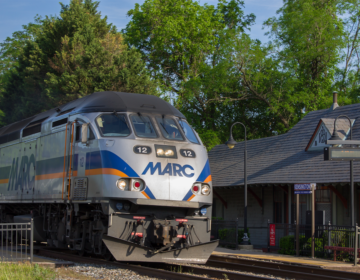Message from the Managing Editor
Nov. 18
By Matt Golas
PlanPhilly Managing Editor
I was sitting at breakfast Saturday morning, thinking about two recent news stories that have all sorts of connective tissue with old man river, as in the Delaware, and us, as in the citizens of Greater Philadelphia.
It was 7:30 and the moment was all about casinos, dredging and cheerios.
You should know I’ve been chewing on the first two ingredients for years, but more on that later.
My first ponder was the city’s seemingly inexorable march toward the reality of living with at least one riverfront casino. That development took more steps forward as the final Gaming Control Board hearings with potential applicants were held this past week in Harrisburg.
The second story was a bit deeper, literally.
Pennsylvania and New Jersey have yet to agree on the parameters of a dredging project that would go far beyond the now allowable maintenance of the existing shipping channel.
Issues flow freely from both story lines.
Casinos will be cash cows for the state. With the revenue come other considerations, including how to fairly apply tax cuts, dealing with traffic volume around the chosen sites, design integrity of the venues, social service programs to deal with problem gambling, the careful integration into a given river ward neighborhood.
Whether muck dredged from the bottom of the Delaware has enough heavy metals to make us glow in the dark is at the heart of the argument between lawmakers about the best way to keep the ports of Camden and Philadelphia competitive. And, of course, there is the complicating factor of the impact main channel deepening would have on the lightering industry here.
There are lots of points of entry into the subjects of casinos and river dredging.
There are just as many points of view, pro and con, about each venture.
Public discourse and dialogue are essential if we are going to see the whole picture.
I ought to know. I’ve been forced to examine slots and dredging from unique perspectives.
When I was Metro Editor at The Inquirer I was mortified that the slots bill was passed in the dark of night and enabled legislators to personally grab a piece of the pie. I worried about those who would succumb to the addictive nature of close-at-hand slots parlors. I was cynical.
Then I became the editor of the Times Leader in Wilkes-Barre.
The old coal town was one empty lot after another. The economy was shaky. There weren’t enough jobs. There wasn’t much to cheer people up. So when Mohegan Sun bought the local harness racetrack and developed a plan for a casino, the newspaper challenged the tribe to do the right thing, to educate customers about the dangers of compulsive gambling, to play a key role in the charity business in Wilkes-Barre.
It was a healthy conversation that framed important decision making.
Ditto on dredging.
When I was New Jersey Editor at The Inquirer in the early ‘90s, I saw the story as a cautionary tale about landfills, dioxins, political expediency and special interest.
Then I tackled the dredging controversy again with a series of stories last year in Wilkes-Barre.
In Northeastern Pennsylvania, Anthracite coal mining is dead. The legacy of that industry, which came to a sudden end when a shaft was accidentally bored into the Susquehanna Riverbed, is abandoned deep mines that leach acidic effluvium into our groundwater.
A Penn State professor has devised a process by which river dredge is mixed with fly-ash to create an inert super cement that would seal the mines and mediate the outflow.
It could be a solution that makes sense on our river and in their mines.
Certainly worth a conversation.
Let’s remember that as we move forward.
WHYY is your source for fact-based, in-depth journalism and information. As a nonprofit organization, we rely on financial support from readers like you. Please give today.






